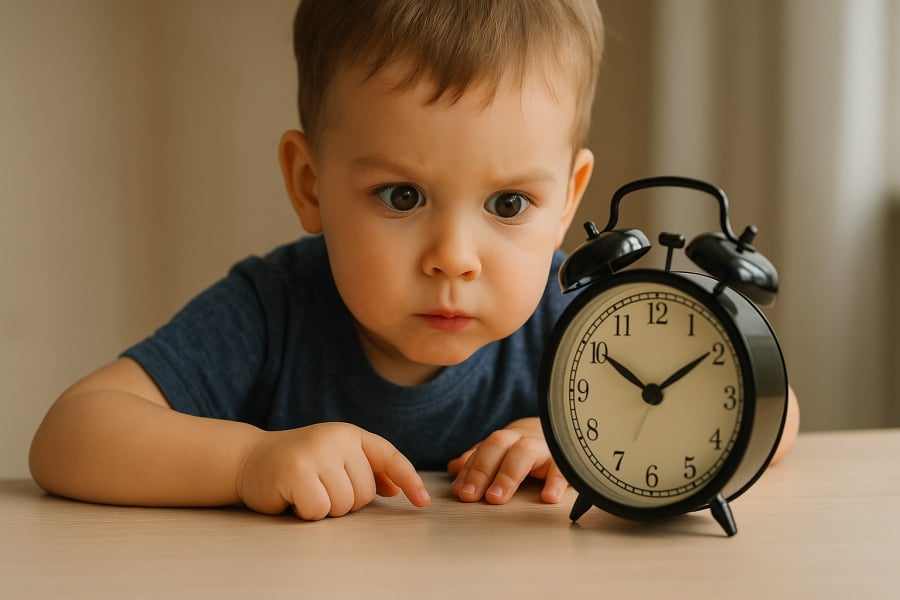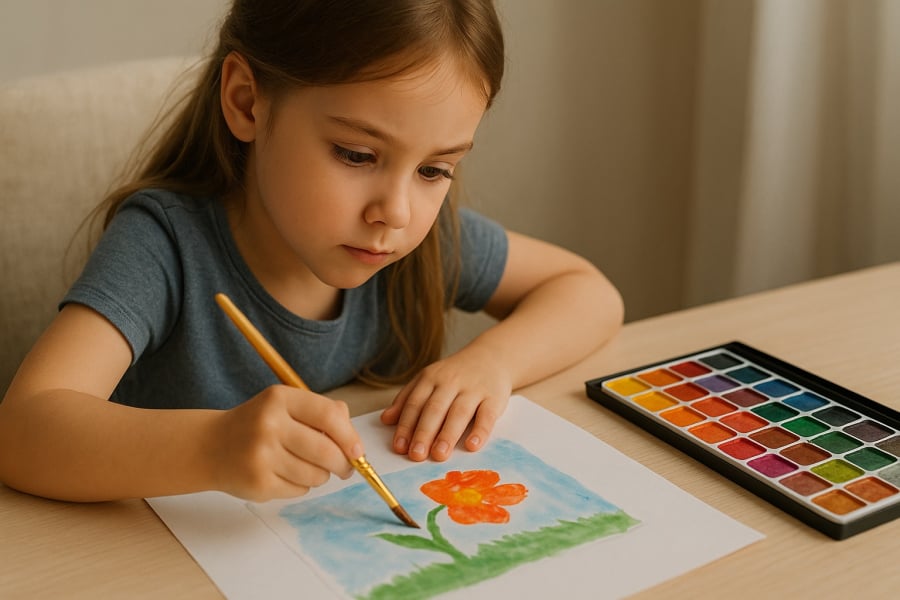Mother Ha Anh, a mother of two young children, shared: “When my first son was only 18 months old, I noticed his fascination with clocks and numbers. He would stare at the clock and count, which surprised me as I had never taught him anything about math.” This is a sign of talent that many parents might overlook. Children often develop in unique ways, and it’s important to observe and understand them without jumping to conclusions. Experts from Ho Chi Minh City Pedagogical University assert that early recognition of talent enables parents to provide the best conditions for their children’s development.
Signs of Early Talent That Mothers Should Note
Extraordinary Memory
Children with excellent memory tend to recall images, sounds, or minor events that adults might overlook. If your child quickly memorizes songs or poems after a few listens or recalls small details from stories, explore this ability further. Psychologists from Hanoi Pedagogical University explain: “Children with good memory often exhibit strong potential for development in various fields.”

Advanced Curiosity
Talented children are often curious and ask thought-provoking questions. They seek to understand the causes and effects of everything around them. When your child starts inquiring about the color of the sky or the speed of an elephant, listen and encourage their exploration. According to Associate Professor Dr. Nguyen Thi Thu Huong: “Curiosity lays the foundation for creativity and learning.”
High Concentration
Another indicator is a child’s ability to focus. A talented child can spend hours engaged in a game, creating artwork, or building models, demonstrating self-discipline and perseverance. Educational psychologists from Ho Chi Minh City Pedagogical University emphasize: “High concentration is a significant indicator of early talent.”
What to Do If You Recognize Your Child’s Early Talent
If you notice any of these signs, avoid pushing your child into numerous extra classes. Instead, create a supportive environment for their natural development. Associate Professor Dr. Nguyen Thi Thu Huong advises: “Parents should focus on nurturing their children’s passions and creativity rather than forcing them into a rigid mold.”
Minh Thu, a mother of a 6-year-old girl, shared her experience: “When I noticed my daughter’s love for music, I enrolled her in a small music club at school and supported her in pursuing her passion. As a result, she became more confident and flourished. This highlights the importance of creating an environment that fosters their unique development.”

Don’t Neglect Balance Between Talent and Happiness
Lastly, always remember that your child’s happiness and well-being take precedence over their talent. Talent can be nurtured, but if a child doesn’t experience love and peace, that talent can become burdensome and stressful. According to psychologists at Children’s Hospital 1: “A happy child will develop more comprehensively than one solely focused on talent at the expense of joy.”
Conclusion
Identifying early talent in children is challenging, but with observation and active listening, you can uncover their unique gifts. Explore the world with your child, support their chosen path, and ensure they enjoy a joyful and fulfilling childhood.





































